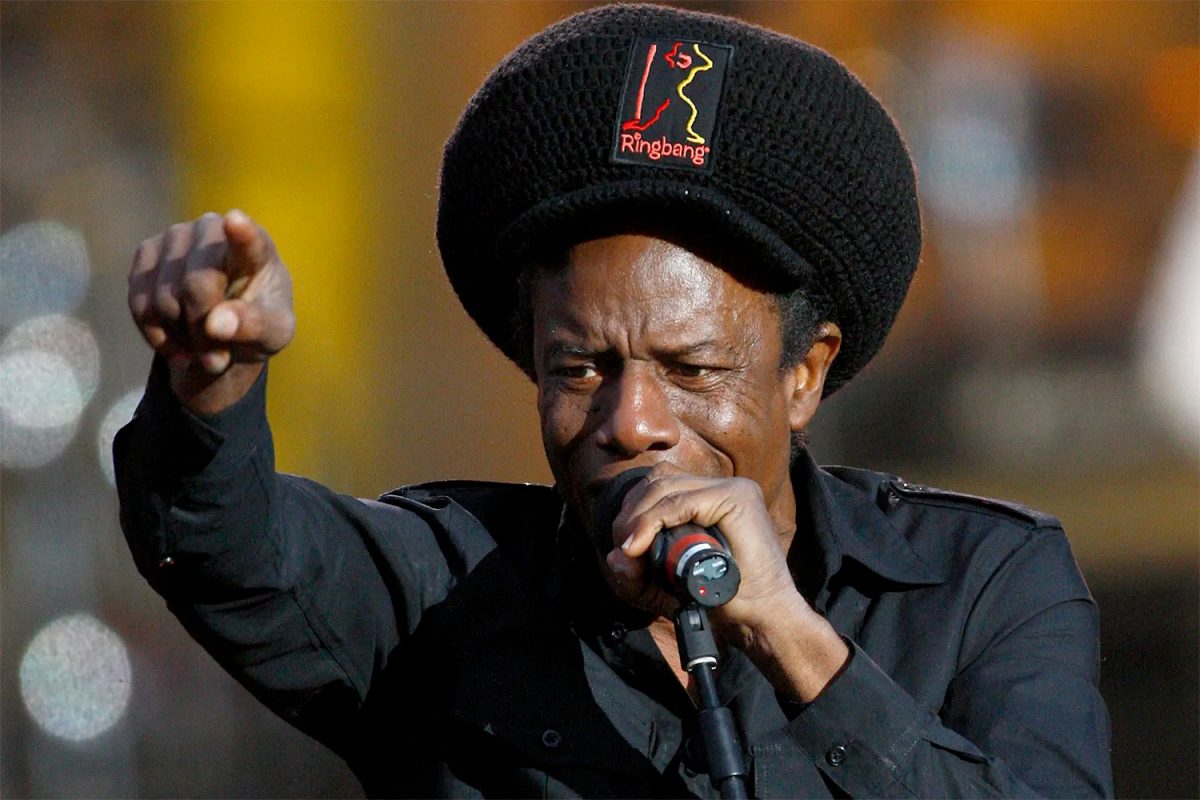Eddy Grant, Donald Trump To Testify In ‘Electric Avenue’ Copyright Infringement Lawsuit

Almost two years after British-Guyanese superstar Eddy Grant, filed a copyright infringement lawsuit against former US president Donald Trump, over the use of his Reggae-fusion song Electric Avenue, both parties have now been directed to testify under oath by June 21.
Grant’s US$300,000 lawsuit had come in 2020, after Trump’s campaign used Electric Avenue, his biggest international hit, in the form of a Biden-bashing tweet during the last presidential election.
A sample from the song, totaling 40-seconds, had been used in the background of an animation that was posted to Trump’s Twitter on August 12, 2020, which jeered “then-candidate Joe Biden, showing him puttering along on a slow-moving hand-car as the Trump campaign barrels by in a high-speed train”, according to The Insider.
The animation was viewed more than 13.7 million times before it was taken down a month later, and, according to Grant’s lawsuit the “the tweet containing the video had been ‘liked’ more than 350,000 times, re-tweeted more than 139,000 times, and had received nearly 50,000 comments”.
However, Trump’s team had argued in his defense, that the animation was political satire and as a consequence, exempt from copyright law. His attorneys said that the campaign team had only “reposted the animation with no idea where it came from” and that he “cannot be sued because of ‘presidential absolute immunity’.
The report said court documents had revealed that lawyers for the two sides had tried to work out their disagreement over the song on March 2, during a closed-door settlement conference, before a magistrate judge.
However, on Wednesday, a new filing by the Gimme Hope Joanna singer’s lawyer, revealed that a settlement was not reached, and the Manhattan-based federal lawsuit “will instead be moving forward with the taping of depositions by all parties”.
The Insider also said that “lawyers for both sides have agreed to a strict gag order in the case and have repeatedly declined to comment on the lawsuit”.
In September last year, Reuters had reported that Trump had lost his bid to escape ‘Electric Avenue’ copyright lawsuit for the misuse of the single, after U.S. District Judge John Koeltl ruled that the former president and his campaign had failed to prove “at an early stage of the case” that the video “made fair use of Grant’s song under federal copyright law” and that the fair-use factors were all in favour of Grant.
The judge had said that the video Trump posted did not “parody the music or transform it in any way,” and that its “overarching political purpose” had not made it “transformative or non-commercial”.
At the time, according to Reuters, Trump’s attorneys did not immediately respond to a request for comment, but the attorney representing Grant, Brian Caplan of Reitler Kailas & Rosenblatt had said in an email that he was “very pleased” with the ruling.
Caplan had also said that there was “no justification under existing copyright law for a politician to simply appropriate a popular recording and synchronize it in an unrelated video for ostensibly a commercial purpose, cloaked as a political advertisement”.
Grant had written, recorded Electric Avenue in 1982 and released it on his 1982 album Killer on the Rampage.
The song which refers to the Electric Avenue in London and the 1981 Brixton Riot, ascended to number two on the Billboard Hot 100 chart where it spent five weeks in that spot. The song also went platinum in the United States, where it was one of the biggest hits of 1983.
On Grant’s official website, the multi-instrumentalist had shared a release dated August 14, 2020, noting that he had taken “prompt action against President Donald Trump’s political campaign team”, for the unlawful use of Electric Avenue in a video criticizing Joe Biden, the Democratic Presidential candidate.
“In my particular case, they have sought to encapsulate my intellectual property into derogatory political rhetoric, further encapsulated in a video production that can only be construed at best as being wicked, thereby causing me considerable emotional distress,” Grant was quoted as saying back then.
The article notes that on August 13, 2020, Grant’s legal counsel, Wallace E. J. Collins had issued a cease and desist letter to the Donald Trump campaign team and that the singer himself, had described the president’s campaign’s actions as a “flagrant abuse” of his rights as an artist, composer, arranger, producer and owner”.
Grant’s attorney had also pointed out that as a result of Trump’s “wrongful unauthorized Infringing Use in connection with his “controversial political campaign”, substantial damage and irreparable harm had occurred to the artiste’s reputation.
His lawyer had also said that Grant has a reputation for standing for truth and justice for all and that this “will be seriously undermined by any affiliation with the name “Trump” in a political context, was a serious transgression and that such damage would extend to the value of the singer’s musical catalogue.
